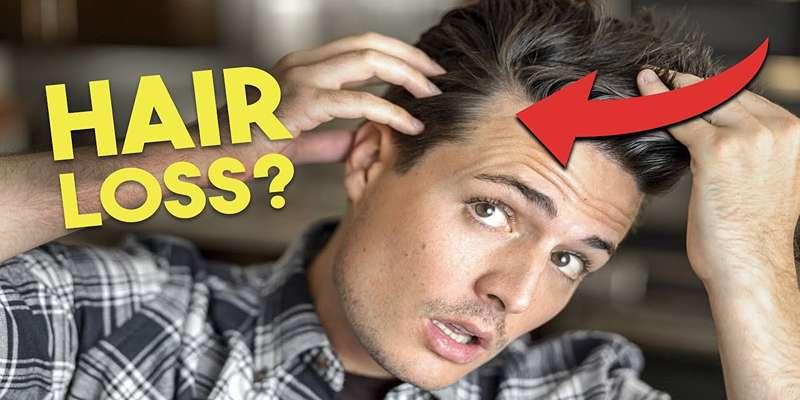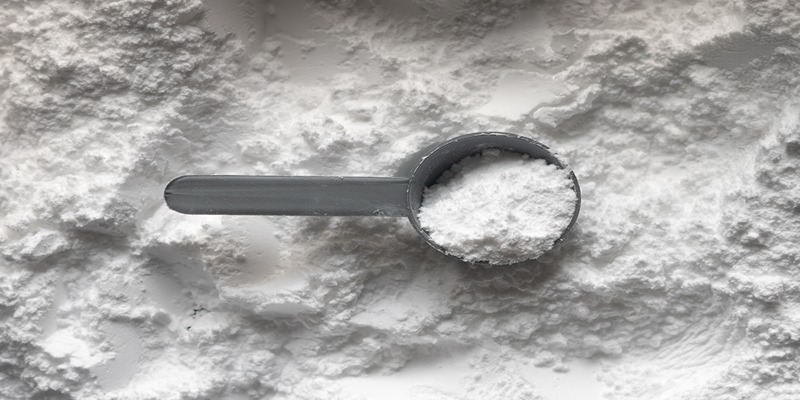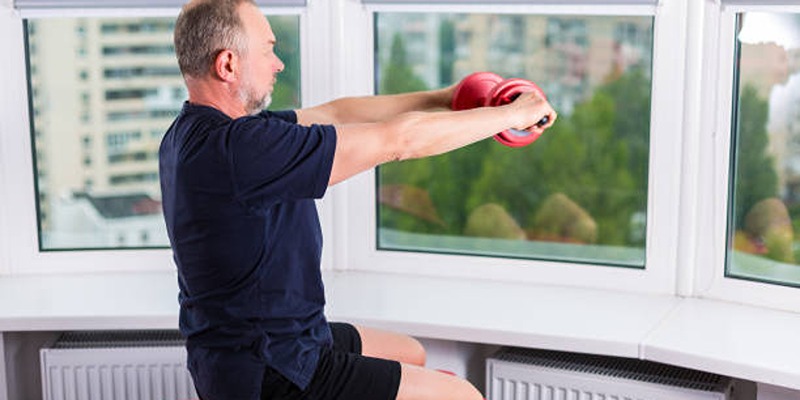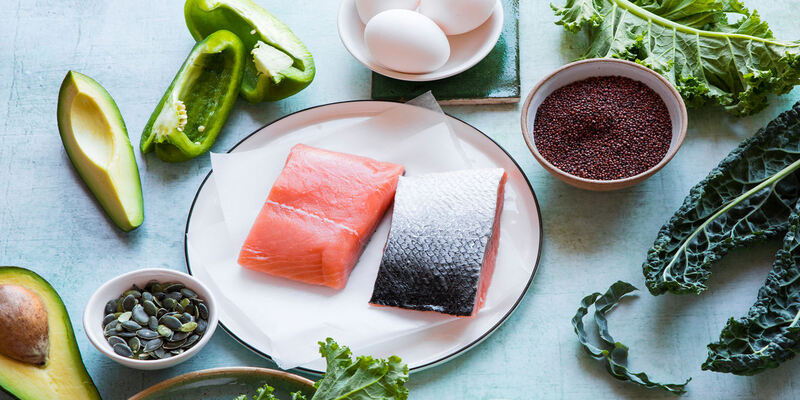Are you starting to notice more hair in the drain when you shower? Are certain parts of your scalp becoming increasingly visible through thinning hair or baldness? Hair thinning is an inevitable part of aging, but it doesn't mean that effective prevention strategies can't be put into place!
This blog post will provide expert tips for stopping and reducing hair thinning so that both men and women can keep their healthy locks. From diet changes to product switches, learn which steps you should take to maintain a full head of thick luscious locks.
1. Start a healthy diet with plenty of protein, omega-3 fatty acids, and vitamins.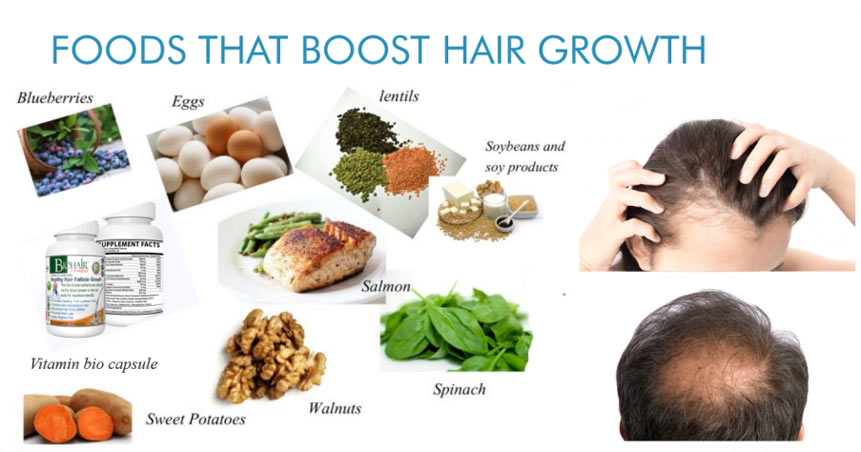
A balanced diet full of essential nutrients is vital for healthy hair, so reduce your sugar and processed food consumption while adding plenty of whole grains, lean proteins, and fresh fruits and vegetables. Protein-rich foods are especially important as they help promote hair growth and strength. Some omega-3 fatty acids like fish, flaxseed, and chia seeds also help promote healthy hair growth. Vitamins like vitamins A, C, B12, and iron promote healthy hair growth.
2. Avoid over-styling or heat-styling your hair.
Heat styling can cause damage to the outer layer of your hair shaft, resulting in split ends and hair breakage. Avoid using heat tools, such as blow dryers, curling irons, or flat irons. If you must style your hair with heat tools, apply a good quality heat protectant product before styling. Additionally, avoid tight hairstyles like buns, ponytails, or cornrows, as they can cause unnecessary stress on the hair follicles.
3. Switch to gentle, sulfate-free shampoos and conditioners.
Harsh shampoos containing sulfates can strip the natural oils from your scalp and hair strands, leaving them dry, brittle, and prone to breakage. Instead, opt for sulfate-free shampoos and conditioners specifically formulated to be gentle on the scalp and hair while providing effective cleaning power.
4. Try a topical treatment containing minoxidil or finasteride.
Minoxidil and finasteride are two drugs clinically proven to reduce hair thinning and promote regrowth in some cases. Minoxidil is a topical solution that can be directly applied to the scalp 2-3 times a day, while finasteride is an oral medication that should be taken once daily. However, both drugs have potential side effects, so consult your doctor before trying these treatments.
4. Massage your scalp with essential oils known for their hair-strengthening properties.
Massaging your scalp with essential oils like rosemary, peppermint, and lavender can help to increase blood flow to the scalp, promote healthy hair growth, and nourish the scalp. Simply mix a few drops of each oil in a carrier oil such as jojoba or coconut and massage into your scalp for 5-10 minutes. Alternatively, you can purchase pre-made scalp massaging serums containing a blend of essential oils for convenience and ease of use.
5. Use scalp scrubs to stimulate blood flow to the follicles.
Scalp scrubs can help to stimulate blood flow to the hair follicles, removing excess sebum and product buildup that can clog the pores. Use a gentle scrub made from natural ingredients like sugar and coconut oil, massaging it into your scalp for several minutes before rinsing with warm water. Follow up with a good quality conditioner to keep your hair and scalp hydrated.
6. Get regular trims to prevent split ends and thinning out of the ends of your hair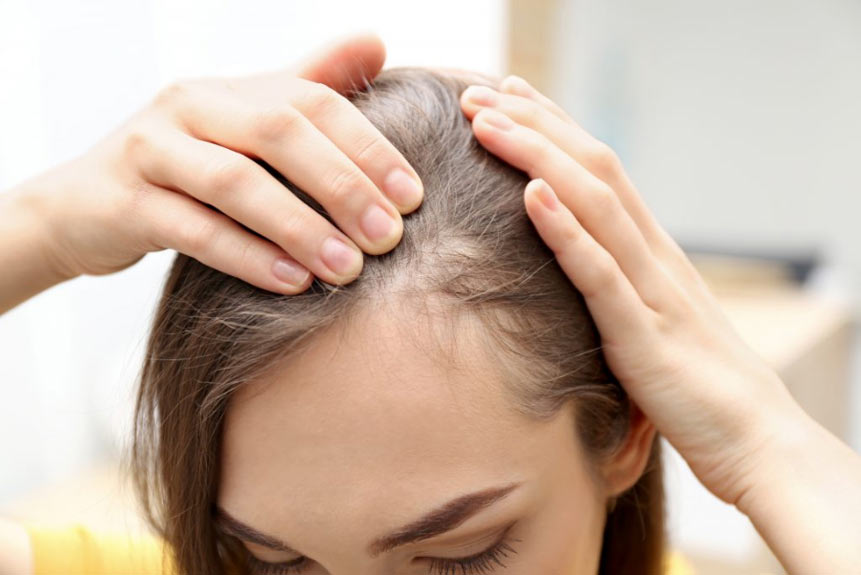
.
Split ends can cause the hair to weaken and break off, resulting in thinner strands of hair. Getting your hair trimmed every 6-8 weeks is recommended to prevent split ends and keep your hair looking healthy and full. Additionally, ensure you're using a pair of scissors specifically designed for cutting hair so that your ends are even and neat.
7. Avoid hats and helmets that apply too much pressure to the scalp.
Headgear such as hats, helmets, or headbands that apply too much pressure to the scalp can cause hair thinning due to friction and tension on the follicles. If you must wear hats or helmets, ensure they aren't too tight and take them off periodically to allow your scalp to breathe.
Follow the Mediterranean diet
for optimal hair health.
The Mediterranean diet emphasizes healthy fats, whole grains, fruits and vegetables, and legumes while limiting red meat intake. Eating a well-balanced diet with foods rich in iron, zinc, biotin, and other essential vitamins can help to promote strong and healthy hair growth. Additionally, studies have shown that individuals following this diet have a lower risk of developing alopecia, a common cause of hair loss.
9. Implement stress management techniques in your daily life.
Stress can affect your physical and mental health, including your hair health. Make it a point to incorporate stress-relieving activities such as meditation, yoga, or journaling into your daily routine to help manage stress levels. Additionally, get plenty of quality sleep each night and exercise regularly for optimal overall health.
Medical treatments can also be used to reduce hair thinning.
In some cases, medical treatments such as low-level laser therapy or platelet-rich plasma injections may be necessary to reduce hair thinning and promote healthy hair growth. Low-level laser therapy uses lasers to stimulate the scalp tissues, while platelet-rich plasma injections introduce helpful growth factors and healing proteins into the scalp. While these treatments can be effective, it is important to understand that they involve some risks, so consult your doctor before trying these treatments.
FAQs
Can hair grow back after thinning?
Yes, hair can grow back after thinning. However, you must take the necessary steps to stop and reverse any hair loss. Depending on the cause of your hair thinning, changes such as altering lifestyle habits and dietary choices, switching up your product routine, or undergoing medical treatments can all be effective strategies for preventing and reducing hair thinning.
What are the best products to use for thinning hair?
The best way to select products for thinning hair is to look for ones that contain natural ingredients, such as essential oils like argan oil or jojoba oil. These will help nourish your scalp, strengthen individual strands, and prevent further hair thinning.
Can hair thinning stop?
Hair thinning can stop on its own if the cause of the thinning is addressed. Identifying and treating underlying health issues, such as anemia or thyroid disorders, is essential in stopping hair loss. Additionally, following a healthy lifestyle that includes exercise and a balanced diet filled with nutrient-rich foods can help keep your hair thick and healthy.
Conclusion
Hair thinning is an inevitable part of aging, but that doesn't mean you can't stop or reduce it! Taking proactive steps such as changing your diet, ditching harsh products, and using supplements to boost hair health will help keep your tresses full and luscious. Along with these tips and tricks, remember to talk to a dermatologist or trichologist if you're concerned about hair thinning. You can find the best solution for your needs and develop an effective action plan. With these strategies in place, you'll be quickly rocking a full head of thick locks!
